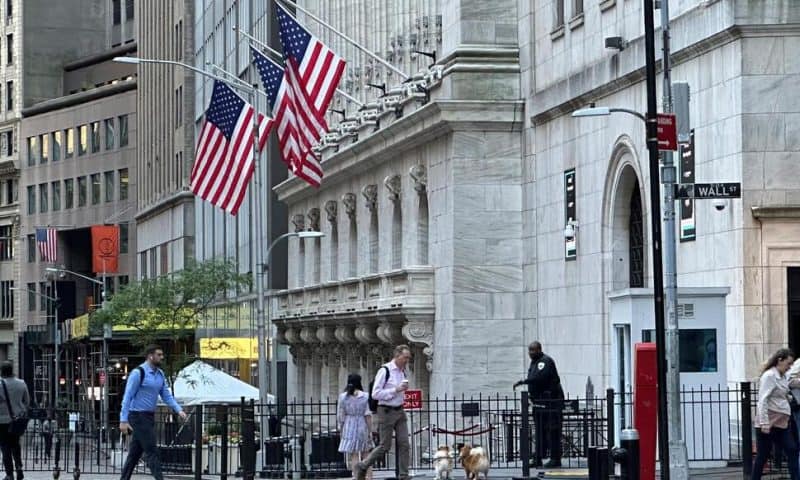A technical issue caused the temporary halt for dozens of stocks listed on the New York Stock Exchange Monday, including at least one whose price briefly fell nearly 100%
NEW YORK — A technical issue caused the temporary halt in trading for dozens of stocks listed on the New York Stock Exchange Monday, including at least one whose price briefly fell nearly 100%.
Berkshire Hathaway, the company run by famed investor Warren Buffett, saw its A-class shares plunge 99.97% to $185.10 from Friday’s closing price of $627,400, before its trading was halted. After the shares later resumed trading, they immediately recovered all those losses and shot toward $700,000.
Throughout the halt, Berkshire Hathaway’s lower-priced B-class shares, which typically trade in concert with the A-class shares, seemed to trade more normally.
A New York Stock Exchange spokesperson said a technical issue related to some pricing data triggered trading halts for up to 40 ticker symbols listed on NYSE Group exchanges. The issue was resolved shortly before noon, Eastern time, and the NYSE said it is reviewing potentially impacted trades.
The issue related to information published by Consolidated Tape Association, which gives ranges for a stock’s price that can halt its trading for volatility if breached. The association said a new software release may have caused the issue, and it resolved the problem by switching over to a secondary data center.
The Consolidated Tape Association listed 40 ticker symbols that “were potentially impacted by erroneous price bands due to this software release.” Among them were Berkshire Hathaway’s Class-A shares — but not its Class-B stock — along with Chipotle Mexican Grill and Bank of Montreal.
It’s not the first glitch to hit Wall Street recently. Last week, S&P Dow Jones Indices said an issue prevented the publication of real-time pricing for its widely followed S&P 500 index for more than an hour during Thursday’s late-morning trading.
The industry has just moved to a new system where the settlement of stock trades happen much faster than they used to. Now, most stock trades need to settle in one business day after a deal is made, instead of the prior requirement of two days.
The change was suggested by of the Securities and Exchange Commission suggested after the “meme-stock” craze of early 2021 put an incredible strain on the market’s plumbing, which eventually led some brokerages to restrict buying of GameStop and other stocks. That caused much anger among their customers.

